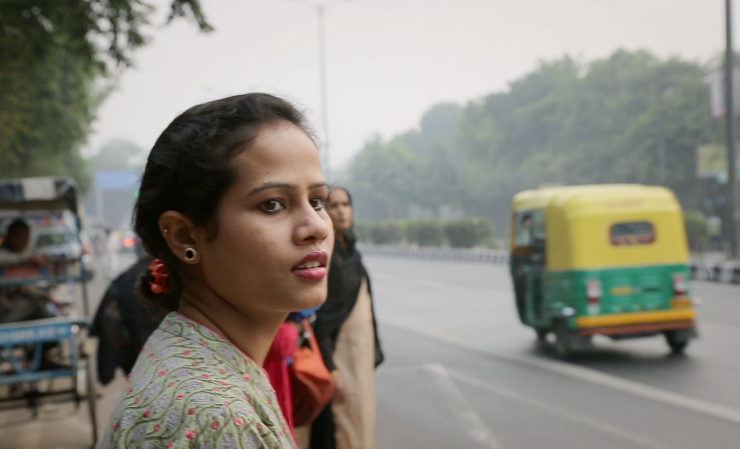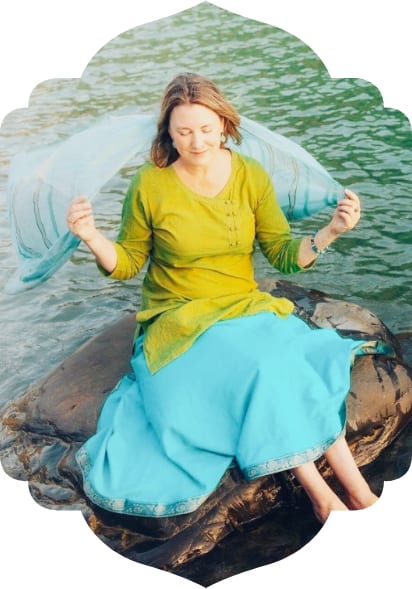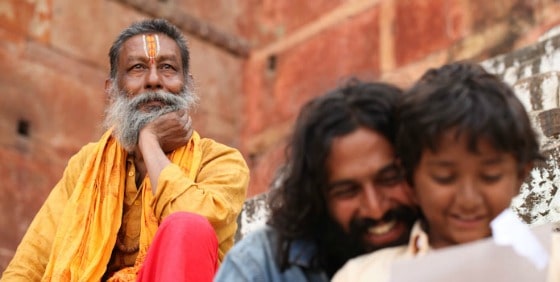
My favourite film at TIFF12
Films from Mumbai, India were featured at this year’s Toronto International Film Festival (TIFF) in the City to City program. Each year, the festival, under the artistic direction of Cameron Bailey, chooses a city with an exciting film scene to spotlight. And this year, Cameron Bailey felt that the new and emerging film makers of Mumbai were “hot.” Make no mistake, these are not Bollywood movies; there is a dearth of stars, glittering costumes and song-and-dance numbers.
I saw about half the films in the Mumbai City program and found them to be thoughtful, interesting and well-made, overall; and I will be reporting on the entire program soon. This blog is about my personal favourite film, The Bright Day — which is about a restless young man in modern India who goes on a time-honoured, but not timely, spiritual quest to find himself In India. The twist, of course, is that these stories are often about foreigners who go to India — people like me; while The Bright Day is about Shiv, a college student in Pune (a city near Mumbai).
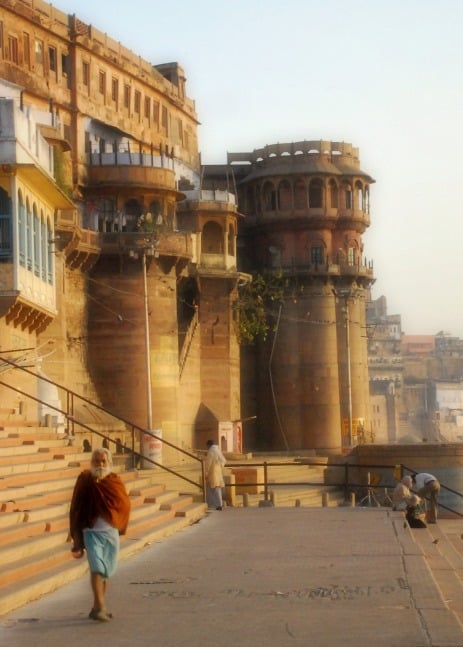
Cameron Bailey wrote: “For decades, backpack-toting youths from the West have travelled to India in search of escape and spiritual adventure. Eight years ago, first-time director Mohit Takalkar and his friend and future lead actor Sarang Sathaye set off on a journey across their own country with neither a schedule nor a fixed destination. Transforming this journey into his lyrical feature debut, Takalkar not only depicts a new generation of Indian youths in search of the same elusive purpose that drew so many foreigners to their land, but also speaks to a more personal kind of filmmaking that is taking root in India’s emerging indie scene.”
The storyline of this film captured me from the outset for obvious reasons, as I too have travelled across India on multiple personal and spiritual quests. In fact, I have been to all the same spots — raucous Mumbai, golden Jaisalmer, mystical Pushkar and of course ancient Benares (Varanasi). On a purely visual level, The Bright Day is a travelogue of some of my favourite places in India. Benares, especially, is beautifully shot in all its misty, intense, sacred glory. It’s a visual treat.
What’s unique about this film is of course the fact that it’s a young Indian man, Shiv, who goes on this archetypal journey. Modern, urban Indians, and perhaps especially the young, seem to be as hell-bent on living a materialistic, consumer-driven life as westerners. I often read about how educated, affluent Indians are for the most part trying to “ape the west” by wearing western clothes, speaking slang-strewn English and going after well-paid careers in IT. But Shiv is different, he is not interested in the trappings of a so-called successful life, he wants to find his “own note.”
When I spoke with director Mohit Takalkar and actor Sarang Sathaye in Toronto about The Bright Day, I told them I thought they were very brave to make their first feature film about a character who turns his back on materialism and chooses a spiritual path, an ancient choice. This is not a “trendy” thing to do, neither in the west nor in India. “Yes, it’s ancient,” Mohit said. “But relevant. So many young people [in India] are not aware of their own culture. Each city, each state has its own smell, colours, faces. I wanted to delve into my own culture.”
Travel, as well as spirituality, are underlying themes, and they come together beautifully in one of the Kabir songs used (extremely effectively) throughout the film:
“The traveller claims all one day. Strange is the path to his home. Those who go never return.”
The words of another Kabir song mirror the state of Shiv’s mind: “My mind has taken to being free. My mind has taken to owning nothing.” Mohit told me they stumbled on these songs and were excited to find, “Kabir said the same thing 400 years back we want to say today.”
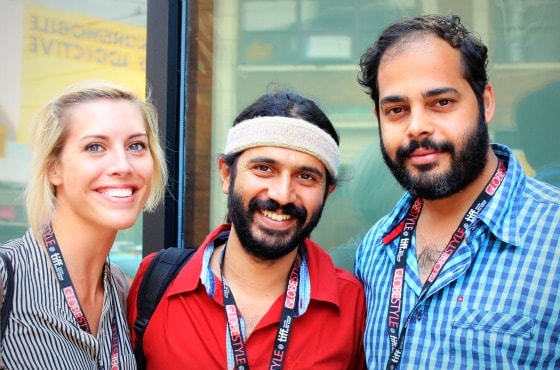
In the film, Shiv leaves his family, his studies, his college friends and girlfriend, and his absence is almost treated as a death. Mohit explained to me that society feels he has abandoned his family; and this is an awkward embarrassment. Shiv travels throughout India, much like he and director Mohit Takalkar did eight years previously, with no destination or schedule — my favourite way to travel. In Jaisalmer, Shiv (Sarang Sathaye) meets an American woman (Kelly Marie Miller), and they hook up and travel together for some time. People who have travelled in India will recognize this type of young western woman, in knee-length harem pants, t-shirt and scarf; they are plentiful in tourist towns like Jaisalmer.
For a time, Shiv thinks he is in love with her, but eventually he ends up in Benares (Varanasi) where he is befriended by a boy and a sadhu (holy man) who live on the ghats. This is where the film got really interesting for me, and I think it is the most accomplished part. The cinematography is gorgeous, and the sadhu is perfectly played by Robin Das, with both a twinkle in his eye and compassion and wisdom in his heart. It is also where Shiv finds his “note” and transforms from a restless, lost youth to a joyful, content man. In other words, he finds his “bright day,” his light within — and also a “someone” he can become. Sarang, too, like Benares, glows in these scenes, and his inner and outer beauty fill the screen. He gives a lovely, nuanced performance as Shiv.
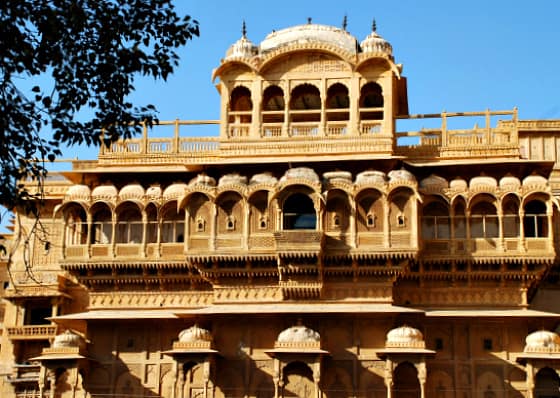
I related to this film in so many ways — not to the American woman, but to Shiv’s character, who doesn’t buy into empty materialism; who wants more (or less, depending on how you see it). But I wonder if there will be an audience for a film like this, and I asked Mohit who he wanted to reach. “I don’t expect it to be a big release,” he said. “But I hope it gets a small release, at least. There are so many restless young people in India, as restless as Shiv, working in IT, software, outsourcing. In their mind, they know the should have taken the road that bothered them five years before. Maybe they would have become a photographer or painter or musician. Maybe if this film releases a small knot in the heart, that maybe I should have taken a different road. If that happens, I will be extremely happy. That is my hope.”
It is my hope too. I have written many times that the spiritual lessons of India are an answer to many of the world’s dilemmas. There is a huge tide of young people in India, hundreds of millions are under 25. I would hate to see them lose their cultural heritage; and I would also hate to see them become avaricious, consumer-oriented materialists, ravaging a world that is already in dire threat of environmental degradation.
Though I know I am bound to be in the minority, I feel this is both a good film and an important one. I wish it would get a big release.
If you enjoyed this post, please sign up to The Travel Newsletter in the sidebar and follow Breathedreamgo on all social media platforms including Instagram, TripAdvisor, Facebook, Pinterest, and Twitter. Thank you!


